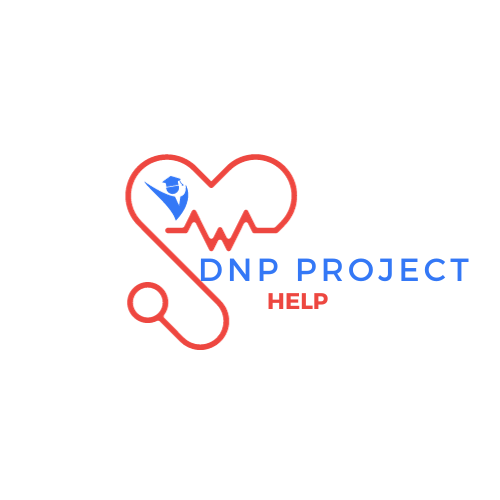
NRS-460 Complex Disease Management: A Comprehensive Guide
In the realm of nursing practice, the management of complex chronic diseases stands as a critical and evolving field. The NRS-460 Complex Disease Management course holds significant importance in preparing nurses to navigate the challenges presented by these conditions effectively. As the prevalence of complex diseases continues to rise globally, the demand for skilled healthcare professionals capable of managing them adeptly has become more pressing than ever.
The primary goal of NRS-460 Complex Disease Management is to equip nursing students with the knowledge, skills, and competencies necessary to provide optimal care for individuals living with complex chronic diseases. Throughout the course, students delve into various core themes, including the pathophysiology of complex diseases, interdisciplinary collaboration, patient education, and self-management strategies. By mastering these essential concepts, students are better equipped to address the multifaceted needs of patients with chronic conditions and promote positive health outcomes.
II. Key Concepts in Complex Disease Management
A. Core Disease Categories
NRS-460 Complex Disease Management encompasses an array of common complex diseases, each presenting its unique challenges and considerations. Among the core disease categories covered in the course are heart failure, diabetes, chronic obstructive pulmonary disease (COPD), and cancer.
1. Heart Failure
Heart failure, a prevalent cardiovascular condition, occurs when the heart’s ability to pump blood efficiently is compromised. The pathophysiology of heart failure involves structural or functional abnormalities that impair the heart’s pumping action, leading to inadequate blood flow to meet the body’s needs. Risk factors for heart failure include hypertension, coronary artery disease, diabetes, and obesity. Clinical manifestations may include dyspnea, fatigue, edema, and exercise intolerance.
2. Diabetes
Diabetes mellitus, a metabolic disorder characterized by elevated blood glucose levels, poses significant challenges for patients and healthcare providers alike. In type 1 diabetes, the body’s immune system attacks and destroys insulin-producing beta cells in the pancreas, leading to insulin deficiency. Type 2 diabetes, the more common form, involves insulin resistance and impaired insulin secretion. Risk factors for diabetes include genetic predisposition, obesity, sedentary lifestyle, and unhealthy dietary habits. Clinical manifestations may include polyuria, polydipsia, polyphagia, weight loss, and blurred vision.
3. Chronic Obstructive Pulmonary Disease (COPD)
COPD encompasses a group of progressive lung diseases, including chronic bronchitis and emphysema, characterized by airflow obstruction and breathing difficulties. The primary risk factor for COPD is tobacco smoking, although environmental exposures such as air pollution and occupational hazards may also contribute. Clinical manifestations of COPD include chronic cough, sputum production, dyspnea, and exacerbations of symptoms.
4. Cancer
Cancer represents a diverse group of diseases characterized by the uncontrolled growth and spread of abnormal cells. Risk factors for cancer vary depending on the type of cancer but may include genetic predisposition, environmental factors, lifestyle choices, and infectious agents. Clinical manifestations of cancer are wide-ranging and may include localized symptoms such as lumps, pain, and changes in bowel or bladder habits, as well as systemic symptoms such as fatigue, unintentional weight loss, and night sweats.
Key Concepts in NRS-460 Complex Disease Management
Interdisciplinary Care: Enhancing Patient Outcomes through Collaboration
In the realm of healthcare, managing complex diseases necessitates a collaborative approach involving various healthcare professionals. From physicians to pharmacists, social workers, and beyond, interdisciplinary care plays a pivotal role in ensuring comprehensive and holistic patient management. This article delves into the importance of interdisciplinary collaboration in managing complex diseases, strategies for effective communication and coordination within the care team, the significance of patient-centered care, and the role of evidence-based practice (EBP) in clinical decision-making.
Importance of Interdisciplinary Collaboration
In the face of complex diseases, no single healthcare professional possesses all the expertise needed to address every aspect of a patient’s care effectively. Collaborating with professionals from diverse disciplines enables a more holistic understanding of the patient’s needs and ensures that care plans are comprehensive and well-rounded. For example, a patient with diabetes may require input from a physician to manage their medical treatment, a pharmacist to optimize their medication regimen, and a social worker to address any psychosocial factors impacting their health.
The collaborative efforts of various healthcare professionals play a pivotal role in providing comprehensive care to patients facing complex diseases. Let’s explore how doctors, pharmacists, social workers, physical therapists, and occupational therapists interrelate in this context:
Doctors
At the forefront of patient care, doctors play a central role in diagnosing complex diseases and developing treatment plans. Through their medical expertise, they identify the underlying causes of patients’ conditions and prescribe medications to manage symptoms, slow disease progression, or promote healing. In NRS-460, doctors work closely with other healthcare professionals to coordinate patient care, monitor treatment effectiveness, and adjust interventions as needed.
Pharmacists
Pharmacists are essential members of the healthcare team responsible for ensuring the safe and effective use of medications. In NRS-460, pharmacists collaborate with doctors to review medication orders, assess potential drug interactions, and counsel patients on proper medication administration. They play a crucial role in optimizing medication regimens to minimize adverse effects and maximize therapeutic benefits, thereby enhancing patient safety and treatment outcomes.
Social Workers
Complex diseases often impact not only patients’ physical health but also their social and emotional well-being. Social workers in NRS-460 provide invaluable support by addressing the social determinants of health and assisting patients in navigating personal and family issues that may affect their ability to manage their conditions effectively. They help patients access community resources, cope with stressors, and strengthen their support networks, ultimately promoting holistic healing and resilience.
Physical Therapists
Physical therapists specialize in restoring and improving patients’ physical function and mobility. In NRS-460, physical therapists collaborate with doctors and other healthcare professionals to develop personalized rehabilitation programs tailored to patients’ unique needs and goals. They employ various therapeutic techniques, exercises, and modalities to address mobility impairments, alleviate pain, and enhance functional independence, empowering patients to regain control over their bodies and improve their quality of life.
Occupational Therapists
Occupational therapists focus on helping patients engage in meaningful daily activities and routines despite physical, cognitive, or emotional challenges. In NRS-460, occupational therapists work alongside doctors and other team members to assess patients’ abilities and limitations and develop customized interventions to promote independence and autonomy. They may recommend assistive devices, modify environments, or teach adaptive strategies to enable patients to perform essential tasks and participate fully in their communities.
In NRS-460 Complex Disease Management, the interdisciplinary collaboration among doctors, pharmacists, social workers, physical therapists, and occupational therapists is essential for delivering holistic care that addresses the multifaceted needs of patients. By working together synergistically, these healthcare professionals optimize treatment outcomes, improve patient satisfaction, and enhance overall quality of life for individuals facing complex diseases.
Strategies for Effective Communication and Coordination
Effective communication and coordination are essential components of interdisciplinary care. Regular team meetings, case conferences, and electronic health record systems facilitate information sharing among team members, ensuring that everyone is on the same page regarding the patient’s care plan. Additionally, establishing clear roles and responsibilities within the care team helps minimize confusion and ensures that each team member understands their contributions to the patient’s care.
Patient-Centered Care
Patient-centered care lies at the heart of managing complex diseases, emphasizing the importance of tailoring care plans to meet the unique needs and preferences of each patient. Empowering patients to actively participate in their care through education, self-management support, and shared decision-making promotes better health outcomes and enhances patient satisfaction. For example, providing comprehensive education on disease management techniques empowers patients to take control of their health and adhere to treatment plans more effectively.
Strategies for Patient Education and Self-Management Support
Patient education is a crucial component of patient-centered care, enabling patients to make informed decisions about their health and actively participate in managing their conditions. Providing clear and concise information about the nature of their disease, treatment options, and self-care strategies empowers patients to take ownership of their health and make lifestyle changes that promote better outcomes. Additionally, offering ongoing support and resources, such as support groups and educational materials, helps patients navigate the challenges of living with a complex disease.
Shared Decision-Making
Shared decision-making involves collaboration between healthcare professionals and patients to make healthcare decisions that align with the patient’s values, preferences, and goals. By engaging patients in discussions about their treatment options, risks, and benefits, healthcare providers empower patients to make choices that best suit their individual circumstances. This collaborative approach fosters trust between patients and healthcare providers, leading to greater satisfaction with care and improved treatment adherence.
Evidence-Based Practice
Evidence-based practice (EBP) serves as the foundation for delivering high-quality care in managing complex diseases. By integrating the best available research evidence with clinical expertise and patient values, healthcare providers can make informed decisions that optimize patient outcomes. Accessing and evaluating research evidence requires critical thinking skills and familiarity with reputable sources of information. Healthcare providers should stay abreast of the latest research findings and incorporate them into their clinical practice to ensure that patients receive the most effective treatments available.
What career paths can I explore after taking NRS-460 Complex Disease Management
After completing NRS-460, you’ll find yourself well-equipped to pursue diverse career paths within the nursing field, particularly those involving the management of complex diseases. Here are several career options you may consider exploring:
1.Medical-Surgical Nursing
In this role, you’ll provide care to patients in acute care settings such as hospitals and surgical centers. As a medical-surgical nurse, you’ll work closely with patients who may have complex medical conditions requiring immediate attention and comprehensive care. Your responsibilities may include monitoring vital signs, administering medications, coordinating with interdisciplinary teams, and educating patients and their families about post-operative care and treatment plans.
2. Chronic Disease Management
With the prevalence of chronic diseases on the rise, there is a growing need for nurses skilled in managing long-term conditions such as diabetes, heart disease, and respiratory disorders. As a chronic disease management nurse, you’ll play a key role in coordinating care for patients with complex health needs. You’ll work collaboratively with patients, their families, and other healthcare professionals to develop personalized care plans aimed at improving health outcomes and enhancing quality of life.
3. Home Health Nursing
Home health nursing offers a unique opportunity to provide personalized care to patients in the comfort of their own homes. As a home health nurse, you’ll visit patients who may have complex medical needs or require ongoing assistance with activities of daily living. Your responsibilities may include conducting assessments, administering treatments, monitoring patients’ progress, and educating patients and their caregivers on self-care techniques and medication management.
4. Case Management
In the role of a case manager, you’ll be responsible for coordinating care and resources for patients with complex health needs. This may involve assessing patients’ needs, developing individualized care plans, coordinating with healthcare providers and community resources, and advocating for patients’ rights and preferences. Case managers play a crucial role in ensuring continuity of care and optimizing patient outcomes by addressing social, financial, and logistical barriers to healthcare access and delivery.
By pursuing a career in one of these nursing specialties, you’ll have the opportunity to apply the knowledge and skills acquired in NRS-460 to make a meaningful difference in the lives of patients with complex diseases. Whether you choose to work in a hospital setting, provide care in patients’ homes, or coordinate resources as a case manager, your expertise in managing complex conditions will be invaluable in improving patient outcomes and promoting overall health and well-being.
FAQ
What is NRS-460 Complex Disease Management?
NRS-460 is a nursing course designed to equip you with the knowledge and skills to manage chronic illnesses effectively. These conditions often involve multiple body systems and require a holistic approach to care.
Why is this course important?
Chronic diseases are a growing concern in healthcare, and nurses play a vital role in managing them. This course prepares you to provide comprehensive, coordinated care for patients with complex conditions.
What types of diseases will I learn about?
The specific diseases covered may vary depending on your program, but common examples include heart failure, diabetes, chronic obstructive pulmonary disease (COPD), and cancer.
What are the core themes of the course?
- Pathophysiology: Understanding how different diseases affect the body.
- Interdisciplinary Care: Collaborating with other healthcare professionals for optimal patient outcomes.
- Patient-Centered Care: Tailoring care plans to individual patient needs and preferences.
- Evidence-Based Practice: Implementing care approaches supported by research.
What skills will I develop in this course?
- Critical thinking: Analyze patient data and make informed decisions about care.
- Communication: Collaborate effectively with patients and other healthcare professionals.
- Patient education: Empower patients to manage their own health.
- Time management: Juggle coursework with clinical commitments (if applicable).



